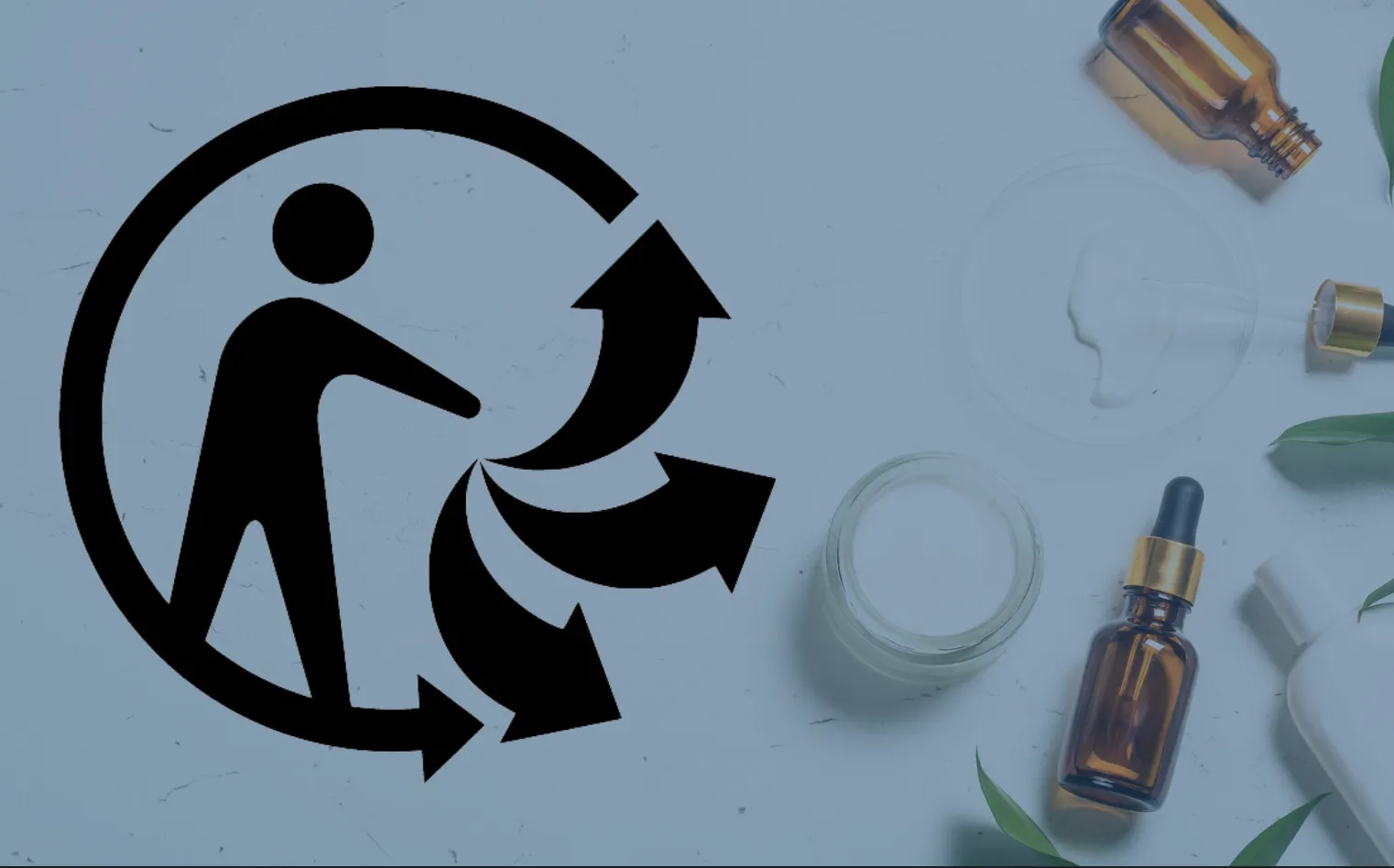
AGEC Law and the TRIMAN Logo
The AGEC (Anti-Waste Law), announced on February 11, 2020, came into effect in January 2021, impacting various industries, particularly the cosmetics sector, by introducing new standards for managing packaging waste. The use of the TRIMAN logo on packaging became mandatory in September 2022, with the transition period ending in March 2023. This law is part of France's broader effort to transition to a circular economy, aiming to reduce waste and increase recycling rates.
The TRIMAN logo applies to household packaging waste sold in France and is used across various industries, including cosmetics, household cleaning products, and food and beverage packaging. However, certain product categories such as pharmaceuticals and hazardous materials are exempt due to their packaging.
Guidelines for Using and Applying the TRIMAN Logo
The TRIMAN logo must be placed on all household packaging sold in France and should clearly inform consumers about how to sort and dispose of the packaging. Here are the correct application guidelines:
1. For recyclable packaging:
The TRIMAN logo must be displayed alongside sorting instructions, indicating how each component of the packaging (e.g., container, cap) should be handled. This helps consumers easily identify recyclable elements.
2. For partially recyclable packaging:
Even if only certain parts of the packaging are recyclable, the TRIMAN logo must be used, and the recyclable components should be clearly marked. Sorting instructions for each recyclable element should be provided.
3. For non-recyclable packaging:
If none of the packaging is recyclable, the TRIMAN logo must still be used, with guidance indicating that the entire packaging should be disposed of as general waste.
4. Pictograms and local regulations:
Sorting instructions should be accompanied by relevant pictograms, and local regulations in each country must be followed where applicable. ADEME (the French Environment and Energy Management Agency) provides standardized templates for reference.
Best Practices and EU-Wide Impact
While the TRIMAN logo is a regulatory requirement in France, some EU countries have adopted it as a valid method for providing sorting information. However, other countries may require additional local sorting information to meet their national waste management regulations. At the EU level, the Packaging and Packaging Waste Regulation (PPWR), which aims to harmonize sorting information, has completed its consultation phase, but the final regulation has not yet been published. If implemented, uniform packaging could be required across EU member states, potentially eliminating the need for different sorting labels in each country.
Future Regulatory Trends and Preparation
Looking ahead, France and the EU are expected to strengthen packaging regulations, particularly targeting the reduction of single-use plastics and encouraging biodegradable alternatives. Companies should start investing in sustainable packaging solutions and incorporate circular economy principles into their business models to prepare for these changes. Once the PPWR regulation is implemented, it could unify sorting guidelines across Europe, offering companies an opportunity to streamline their packaging processes while ensuring regulatory compliance.
Technical Details for Implementing Info-Tri and the TRIMAN Logo
To implement the Info-Tri system effectively, sorting instructions must be clearly displayed on the packaging, accompanied by both text and pictograms. The French Environment and Energy Management Agency (ADEME) provides detailed templates and guides to help companies apply these regulations, enhancing consumer education and sorting guidance.
EcoMundo offers the following services to help companies comply with Info-Tri and TRIMAN regulations:
- Detailed review of packaging components
- Assistance in collecting missing information from suppliers, if necessary
- Setting up sorting guidelines based on the type of packaging used
AGEC Law and the TRIMAN Logo
The AGEC (Anti-Waste Law), announced on February 11, 2020, came into effect in January 2021, impacting various industries, particularly the cosmetics sector, by introducing new standards for managing packaging waste. The use of the TRIMAN logo on packaging became mandatory in September 2022, with the transition period ending in March 2023. This law is part of France's broader effort to transition to a circular economy, aiming to reduce waste and increase recycling rates.
The TRIMAN logo applies to household packaging waste sold in France and is used across various industries, including cosmetics, household cleaning products, and food and beverage packaging. However, certain product categories such as pharmaceuticals and hazardous materials are exempt due to their packaging.
Guidelines for Using and Applying the TRIMAN Logo
The TRIMAN logo must be placed on all household packaging sold in France and should clearly inform consumers about how to sort and dispose of the packaging. Here are the correct application guidelines:
1. For recyclable packaging:
The TRIMAN logo must be displayed alongside sorting instructions, indicating how each component of the packaging (e.g., container, cap) should be handled. This helps consumers easily identify recyclable elements.
2. For partially recyclable packaging:
Even if only certain parts of the packaging are recyclable, the TRIMAN logo must be used, and the recyclable components should be clearly marked. Sorting instructions for each recyclable element should be provided.
3. For non-recyclable packaging:
If none of the packaging is recyclable, the TRIMAN logo must still be used, with guidance indicating that the entire packaging should be disposed of as general waste.
4. Pictograms and local regulations:
Sorting instructions should be accompanied by relevant pictograms, and local regulations in each country must be followed where applicable. ADEME (the French Environment and Energy Management Agency) provides standardized templates for reference.
Best Practices and EU-Wide Impact
While the TRIMAN logo is a regulatory requirement in France, some EU countries have adopted it as a valid method for providing sorting information. However, other countries may require additional local sorting information to meet their national waste management regulations. At the EU level, the Packaging and Packaging Waste Regulation (PPWR), which aims to harmonize sorting information, has completed its consultation phase, but the final regulation has not yet been published. If implemented, uniform packaging could be required across EU member states, potentially eliminating the need for different sorting labels in each country.
Future Regulatory Trends and Preparation
Looking ahead, France and the EU are expected to strengthen packaging regulations, particularly targeting the reduction of single-use plastics and encouraging biodegradable alternatives. Companies should start investing in sustainable packaging solutions and incorporate circular economy principles into their business models to prepare for these changes. Once the PPWR regulation is implemented, it could unify sorting guidelines across Europe, offering companies an opportunity to streamline their packaging processes while ensuring regulatory compliance.
Technical Details for Implementing Info-Tri and the TRIMAN Logo
To implement the Info-Tri system effectively, sorting instructions must be clearly displayed on the packaging, accompanied by both text and pictograms. The French Environment and Energy Management Agency (ADEME) provides detailed templates and guides to help companies apply these regulations, enhancing consumer education and sorting guidance.
EcoMundo offers the following services to help companies comply with Info-Tri and TRIMAN regulations:
- Detailed review of packaging components
- Assistance in collecting missing information from suppliers, if necessary
- Setting up sorting guidelines based on the type of packaging used



.png)



